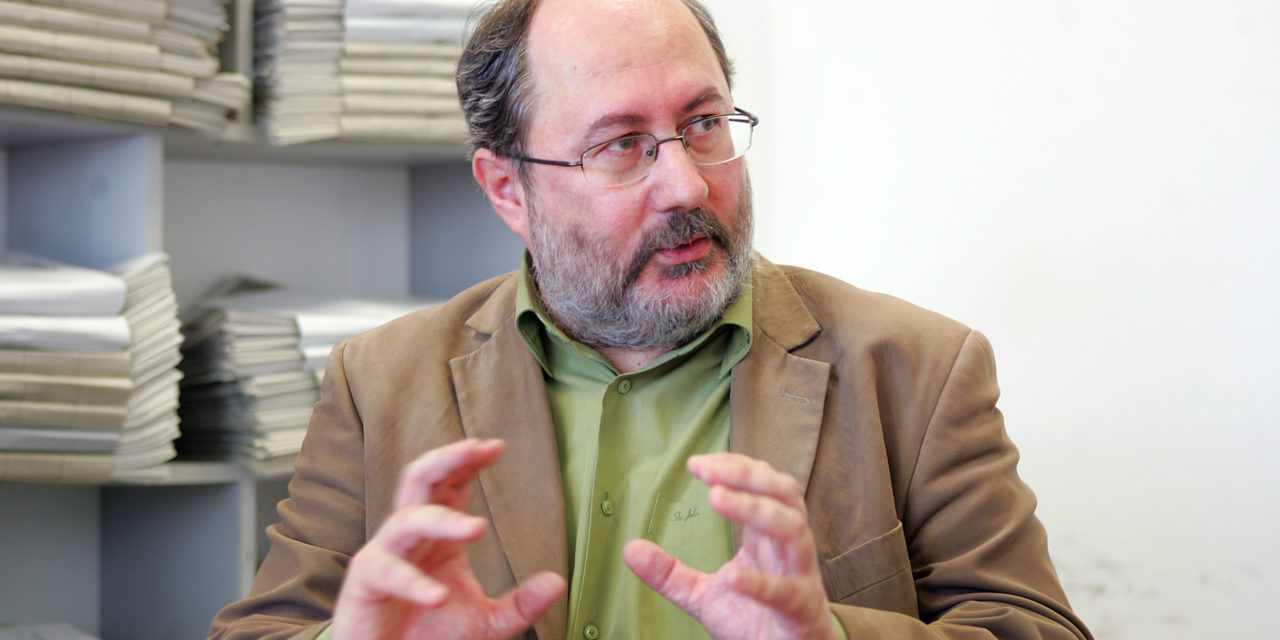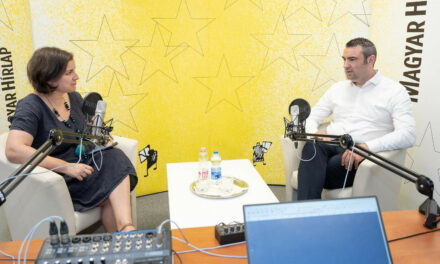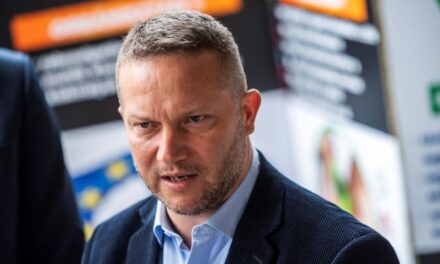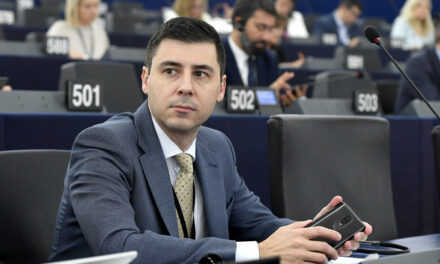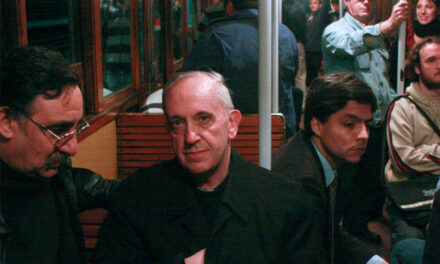Below is an opinion piece published by Tamás Fricz in Magyar Nemzet.
In recent years, I myself have written and spoken several times about one of the important institutions of the global elite, the European Council of Foreign Relations (ECFR), which - you won't believe it! – Founded by György Soros in 2007. Well, the famous member of this currently 374-person council is Gordon Bajnai.
The goal of the global elite is for there to be a change of power in Hungary, for the Orbán government to fail, and for a government that is kind to them to come and implement their ideas on Hungarian soil. Gordon Bajnai, who is one of, if not the most important Hungarian link of the global network, or, if we can use the concept of network theory, a "node" has a prominent role in organizing this.
We could already guess and know this, but Gyula Gansperger, Bajnai's old comrade-in-arms, made it quite clear in the Anonymus recordings. It's so clear that it almost dawns on you: maybe he wanted to send a message?
He said the following, let's quote it: "In Hungary, foreign forces and financiers are basically behind the movement of the entire opposition, don't you think? [...] Right, one part of it is the Soros empire, let's put it this way. The other part, the big capital groups, Germany, the United States mainly, who would like to have influence here. I think Gordon is their man.”
He continued: "Now there are these foreign-educated figures, like Tímea Szabó, the rose of Kabul, she worked for the CIA in Kabul. […] The girl is pretty tough, but that's why. […] He worked abroad both in New York and in Kabul. Wait a minute, but these Soros people can move certain things. But at the top is Gordon […] Are they the financial circles, the EBRD, all such large Western banks, who want to overthrow the Orbán regime. Simor was vice-president of the EBRD, you know. […] He is the president of the MNB. [...] He was Gordon's buddy and his boss at the CIA."
So the “top” is the Gordon…
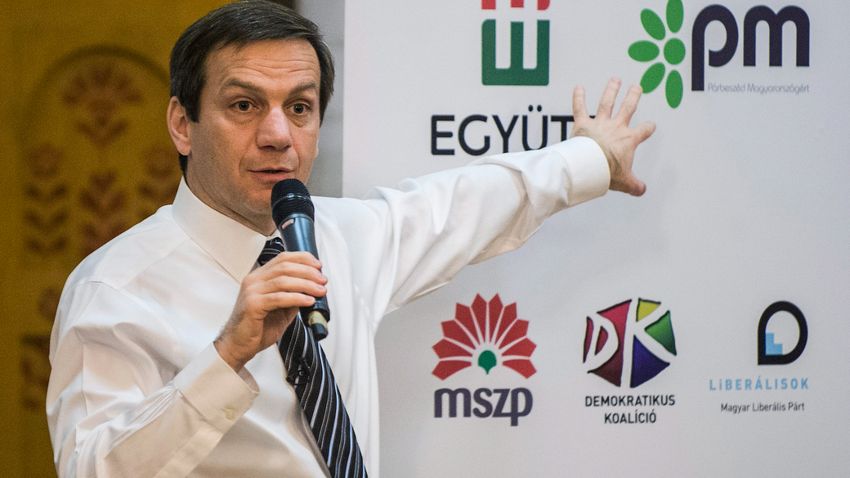
Gordon Bajnai in 2014./Illustration/MTI/Sándor Ujvári
Let's put the threads together: an important institution of the global elite is the European Council on Foreign Relations, whose parent institution is none other than the New York-based Council of Foreign Relations (CFR), which was founded in 1921.
This organization is known to be one of the defining background institutions of the global economic world elite, the Rothschild banking dynasty played a leading role in its founding and operation, but later it came under the control of the Rockefeller clan.
Along with them, the world's most powerful financial dynasties, such as Morgan, Rockefeller, Kuhn, Loeb, Harriman, Warburg, Schiff and others, are participating. Several American presidents were raised on the breasts of the CFR, they include members of the super-financial elite on Wall Street, the world's largest companies and financial institutions, Big Tech, i.e. the big technological giants, as well as the dominant press and media empires, but also George Clooney, for example .
And of course, György Soros is a member of this institution, who was also its director for several years, and who initiated the creation of the European Council on Foreign Relations in 2007. The CFR's undisclosed goal is to create a kind of world governance. Clear words, let's translate them into Hungarian: their goal is to transform the union into a super-federal empire, a European United States, which could function as a European repository of global world governance.
Uncle Gyuri came up with this honestly, let's admit it.
And now let's connect two names or in the language of network theory: two vertices, discovering the edges (the connecting threads) between them. So who is the person who is the most important Hungarian person of the global elite, who is controlled by global capital on the one hand, and György Soros himself on the other - as a kind of network center?
Gordon the champion.
And who did Péter Márki-Zay meet in London recently and talk to for three hours in a restaurant?
Bajnai with Gordon.
And who else did Márki-Zay meet in London? Timothy Garton Ash with world-renowned left-liberal, globalist historian. And where did you meet him? At Chatham House!

Source: End of the century
A puzzling question: are these people, i.e. Gordon Bajnai and Péter Márki-Zay, working to build an independent and sovereign Hungary? Variation B: or not? I await the interpretations in the editorial office. After that, let's briefly return to the ECFR, because it's worth looking at who is among the members of the council.
"Insignificant" figures: heads of state and government, ministers, EU officials, members of parliament, European commissioners, ambassadors, etc. Based on the 374 names, one cannot come to any other conclusion than that the ECFR is nothing but the deep state of the Union. In fact, the most important European issues can be decided here and not in the formal decision-making forums!
Among the members of the council, it is worth mentioning a few names, because the list is instructive.
From Austria, the list includes former EP representatives Ulrike Lunacek and Hannes Swoboda, both great enemies of Hungary, but former chancellor Sebastian Kurz (!) is also a member of the council. The important figure of the Soros network, Gerald Knaus, the president of the European Stability Initiative, who has already done a lot of damage to our country, is also located here. From Denmark, it is worth mentioning the liberal politician Margrethe Vestager, who is currently the executive vice-president of the committee, committed to the federal union and global goals.
The member of the council from Estonia is none other than Kaja Kallas, the current Prime Minister of Estonia (!), who, although on paper the leader of a center-right party, is nevertheless a committed supporter of the "rule of law" and green ideology, and of course a globalist. The member from France is Pascal Lamy, former Director General of the WTO (World Trade Organization), president emeritus of the Jacques Delors Institute (Delors was one of the most federalist presidents of the commission between 1985 and 1995).
And then come Germany: among the members we find Norbert Röttgen, who applied for the position of president of the CDU at the beginning of last year, a true Merkel follower, currently one of the vice-presidents of the ECFR (!), former Green foreign minister Joschka Fischer, a former student rebel from '68 we are not surprised, but Annalena Baerbock, the newly appointed Minister of Foreign Affairs of the Greens, and Cem Özdemir, the Minister of Agriculture of the Greens, are also here!
From Italy, it is worth mentioning Romano Prodi, the former president of the European Commission who is also a federalist, from the Netherlands, for the sake of interest, Kati Piri of Hungarian origin, sufficiently anti-Hungarian, former EP representative, from Norway, Jonas Gahr Store of the Labor Party, who - insignificantly - has been the country's prime minister since 2021 (!), from Poland, Radoslaw Sikorski, the former foreign minister of Tusk's Civil Platform, and Rafal Trzaskowski, the staunch liberal mayor of Warsaw (who even teamed up with Gergelly Karácsony), from Slovakia, Ivan Korcok, who is currently the foreign minister and recently declared that he is bothered by Hungary and Poland his use of words related to the union (!), from Spain - they are not surprised, are you - Joaquín Almunia, the former vice-president of the European Commission, who stood up to the Gyurcsánys in 2006, and from Sweden, Foreign Minister Ann Linde, who attacked the Orbán government countless times. And historian Timothy Garton Ash from Great Britain, whom Márki-Zay met at Chatham House - the historian is also a member of many societies.
And do you know who represents Hungary in this illustrious body besides Gordon Bajnai? The names of Klára Dobrev and Tibor Dessewffy, a sociologist, are hardly surprising. But here is Dávid Korányi, who was also the state secretary of the Bajna government, and is currently Karácsony's chief city diplomacy adviser in the capital.
However, the slusszpoén is none other than the names of two true patriots on the Hungarian list: György Soros and Alexander Soros. As Hungarian members... We've all calmed down now, haven't we? I can't say anything else in the end: let's keep our watchful eye on April 3rd!
Source: Magyar Nemzet/Tamás Fricz/ The author is a political scientist and research consultant of the Center for Fundamental Rights
Featured Image: MH

